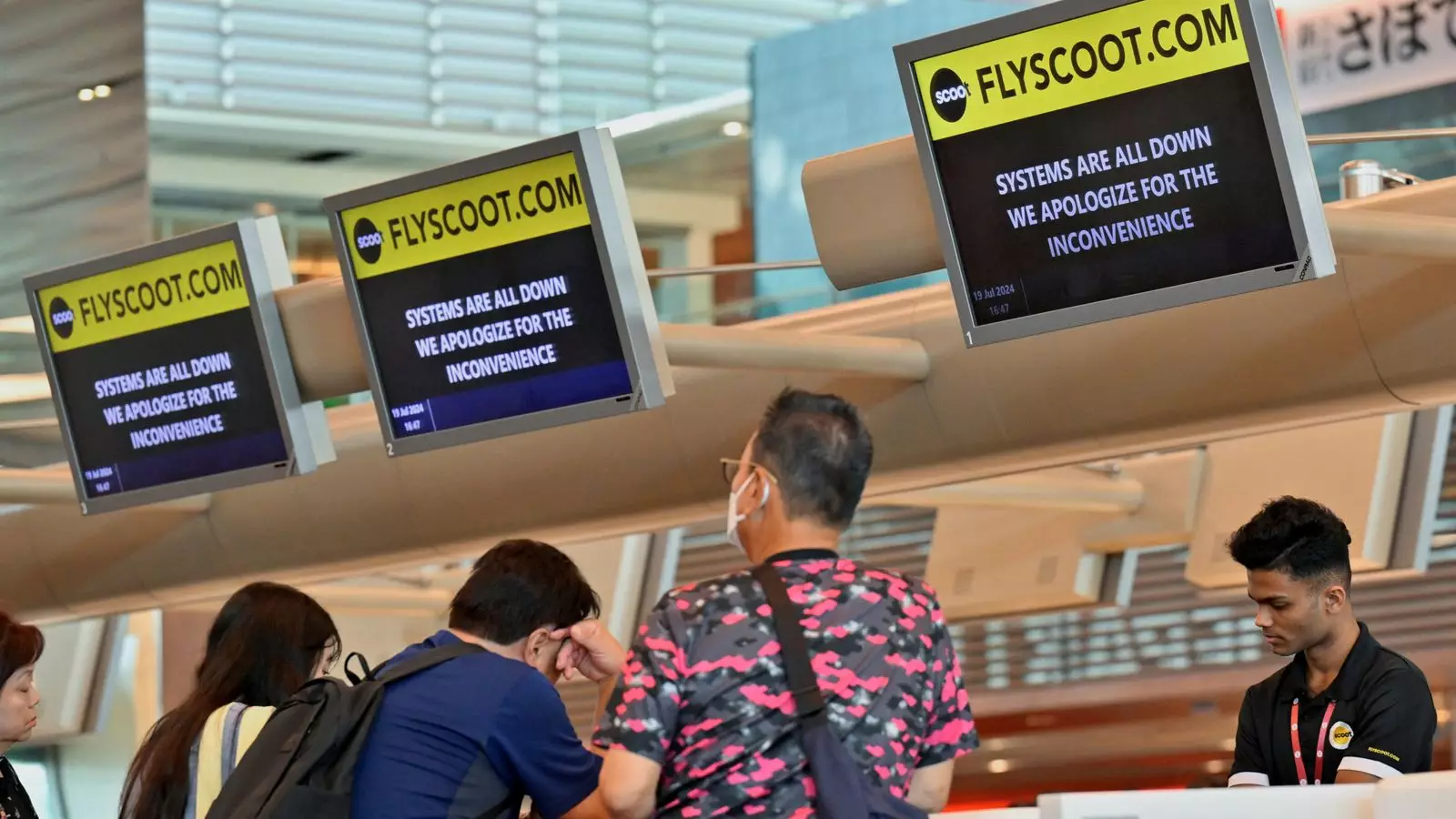The recent global IT outage has caused widespread chaos in transportation networks around the world, particularly in the aviation industry. Major airports such as London Heathrow, Singapore’s Changi Airport, Schipol Airport in Amsterdam, and Melbourne Airport in Australia have all faced significant disruptions in their operations. Check-ins and security procedures have been severely impacted as online systems run by Microsoft shut down, leading to flight cancellations and delays. The situation is dire, with 1,167 flights cancelled worldwide as of 11am (UK time) on Friday morning, and the number is expected to increase, according to data from aviation analysts Cirium.
Passengers at various airports have been caught in the crossfire, facing long queues and delays. In Europe, Amsterdam’s Schipol Airport, the continent’s busiest airport, is experiencing average delays of 78 minutes. Many airports have resorted to using manual systems, such as whiteboards at Belfast International Airport, to provide flight information due to electronic screens not functioning. One passenger at Berlin airport shared her experience of finding out about her cancelled flight only upon reaching the terminal, highlighting the lack of communication and information available to passengers.
The chaos caused by the IT outage is not limited to the aviation sector, as the railway industry has also been significantly impacted. Fourteen companies run by the Rail Delivery Group in the UK have reported issues, affecting services across the entire network. Train operators are facing challenges such as the inability to access driver diagrams at certain locations, leading to potential short-notice cancellations. Key systems like real-time customer information platforms and ticket machines at stations are also affected, further exacerbating the situation for both passengers and railway staff.
National Rail has advised affected customers to use their tickets on alternative services, including the London Underground and buses, at no extra cost. Despite the disruptions, Network Rail has reassured customers that the majority of the rail network remains operational despite the IT outage. This dual impact on both air and railway travel underscores the far-reaching consequences of the global IT meltdown on transportation networks worldwide.
Transport Secretary Louise Haigh has acknowledged the IT failures impacting several transport operators and terminals and emphasized the collaborative efforts underway within the industry and across government to address the issue promptly. The priority is to mitigate the disruptions and ensure the safety and security of passengers amidst the ongoing chaos. While there are no known security issues at present, the focus remains on restoring normal operations as swiftly as possible.
The challenges posed by the global IT outage have highlighted the vulnerabilities in modern transportation networks that rely heavily on digital systems for day-to-day operations. The need for robust contingency plans and resilient infrastructure has become evident in the face of unforeseen circumstances such as widespread IT failures. As the transportation sector grapples with the fallout of this crisis, lessons must be learned, and proactive measures must be taken to prevent similar disruptions in the future. The collaborative response from government, industry stakeholders, and technology providers will be crucial in navigating through this turbulent period and rebuilding trust in the reliability of transportation networks worldwide.

Leave a Reply